J.M.E. M c Taggart
Varsonofiev relaxed and said with a tired smile: Important questions always have long, tortuous answers...
A. Solzhenitsyn, August 1914 , chapter 42
No philosophy has ever been able to avoid paradox. For no philosophywith whatever intentions it may have set outhas been able to treat the universe as being what it appears to be.
J.M.E. M c Taggart, The Nature of Existence , vol. II, section 693.
The free man thinks of death least of all things, and his wisdom is a meditation, not of death, but of life.
Spinoza, Ethics , IV, 67.
Quoted by M c Taggart in Nature of Existence , vol. II, section 502, and read, as per his instructions, on his death.
And thus the very greatness of evil which we endure gives us some slight anticipation of the greatness of the good which outweighs it infinitely.
Of the nature of that good we know something. We know that it is a timeless and endless state of lovelove so direct, so intimate, and so powerful that even the deepest mystic rapture gives us but the slightest foretaste of its perfection. We know that we shall know nothing but our beloved, and those they love, and ourselves as loving them, and that only in this shall we seek and find satisfaction. Between the present and that fruition there stretches a future which may well need courage. For, while there will be in it much good, and increasing good, there may await us evils which we can now measure only by their infinite insignificance as compared with the final reward.
J.M.E. M c Taggart, The Nature of Existence , vol. II, section 913.
Pre-existence renders more probable a plurality of future lives. And the prospect of a great number of livesperhaps an infinite number, though this is not a necessary part of the theorygives us the prospect of many dangers, many conflicts, many griefs, in an indefinitely long future. Death is not a haven of rest. It is a starting-point for fresh labours. But if the trials are great, so is the recompense. We miss much here by our own folly, much by unfavourable circumstances. Above all we miss much, because so many good things are incompatible. We cannot spend our youth both in the study and in the saddle. We cannot gain the benefit both of unbroken health and of bodily weakness, both of riches and of poverty, both of comradeship and of isolation, both of defiance and obedience. We cannot learn the lessons alike of Galahad and of Tristram and of Caradoc. And yet they are all so good to learn. Would it not be worth much to be able to hope that what we missed in one life might come to us in another? And we might have a chance to succeed hereafter in the tasks which we failed in here?
It may be that the change, the struggle, and the recurrence of death, are endless, or, again, it may be that the process will eventually destroy itself, and merge in a perfection which transcends all time and change. Such an end may come, perhaps, but at any rate it cannot be near.
But though the way is long, and perhaps endless, it can be no more wearisome than a single life. For with death we leave behind us memory, and old age, and fatigue. And surely death acquires a new and deeper significance when we regard it no longer as a single and unexplained break in an unending life, but as part of the continually recurring rhythm of progressas inevitable, as natural, and as benevolent as sleep. We have only left youth behind us, as at noon we have left the sunrise. They will both come back, and they do not grow old.
J.M.E. M c Taggart, Some Dogmas of Religion , chapter IV, section 111.
None ever went about to break logic, but in the end logic broke him.
J.M.E. M c Taggart, Studies in Hegelian Cosmology , section 312.
J.M.E. M c Taggart
Substance, Self, and Immortality
Ramesh K. Sharma
Lexington Books
Lanham Boulder New York London
Published by Lexington Books
An imprint of The Rowman & Littlefield Publishing Group, Inc.
4501 Forbes Boulevard, Suite 200, Lanham, Maryland 20706
www.rowman.com
Unit A, Whitacre Mews, 26-34 Stannary Street, London SE11 4AB
Copyright 2015 by Ramesh Kumar Sharma
All rights reserved . No part of this book may be reproduced in any form or by any electronic or mechanical means, including information storage and retrieval systems, without written permission from the publisher, except by a reviewer who may quote passages in a review.
British Library Cataloguing in Publication Information Available
Library of Congress Control Number: 2015949366
ISBN: 978-0-7391-8675-6 (cloth : alk. paper)
eISBN: 978-0-7391-8676-3
 The paper used in this publication meets the minimum requirements of American National Standard for Information SciencesPermanence of Paper for Printed Library Materials, ANSI/NISO Z39.48-1992.
The paper used in this publication meets the minimum requirements of American National Standard for Information SciencesPermanence of Paper for Printed Library Materials, ANSI/NISO Z39.48-1992.
Printed in the United States of America
Dedicated to my wife, who is now no more.
Contents
Few have heard of him. Still few read him, and among those who read him, few care to write about him. Even to these last, he is known mostly as a fabricator of the paradox concerning Time. It is true that he rejected the reality of time, and it is also true that when Cambridge philosophers analyze metaphysical arguments, they have a strong tendency to point to his argument against time as a prototype. Indeed almost every twentieth-century discussion in Anglo-Saxon philosophy about the problem of time willy-nilly wrestles with the form he gave to it and bequeathed to the successive generations of philosophers. Though this in itself is no small reputation, it is this writers considered view that the philosopher to whom the above description seems uniquely to apply and who was fond of giving his full long nameJohn M c Taggart Ellis M c Taggarton all his works published during his lifetime, deserves to be read, discussed, and remembered for many more things.
That John E. M c Taggart (18661925) ranks among the immortals of philosophy scarcely needs mentioning. The nature and method of M c Taggarts philosophical inquiry into the ultimate features of existence as a whole and his consequent enterprise propelled no less a philosopher than C.D. Broad to compare his masterpiece, The Nature of Existence (two volumes; 1921, 1927) to Plotinus Enneads , Spinozas Ethics , and Hegels Encyclopaedia . Two years after his death in 1925, C.D. Broad, who was, along with G.E. Moore and Bertrand Russell, M c Taggarts pupil at Trinity College, Cambridge, and who while writing the obituary notice of M c Taggart which appeared in the Proceedings of the British Academy in 1927, was under no obligation whatsoever to adulate his teacher after his death, wrote the following about M c Taggarts magnum opus : The system expounded in the Nature of Existence is equal in scope and originality to any of the great historical systems of European philosophy, whilst in clearness of statement and cogency
Philosophy is as much about arguments as about truth. And M c Taggart, to a good part of whose philosophic thought this study would be devoted, is known both for his arguments and conclusions. Few philosophers of twentieth century would compare with him in the insistence on proof for what is asserted; and readers of his writings, including The Nature of Existence , are certain to have occasion to know at firsthand how sincere, strenuous and ingenious are his efforts to provide what in his view a philosopher should by way of demonstrating how he reaches what he claims to be true. Whatever view one finally takes of M c Taggarts central conclusions, which often (as he himself admits) may seem paradoxical, his system, to paraphrase one historian, is arguably one of the boldest and most imposing and original attempts to think the world as a whole which have been made in Britain. To the shaping of his rigid and exclusive system, which found its crowning moment in his Nature of Existence , he brought a remarkable clearness and economy of thought, ruthless and inevitable logic, constructive power, speculative depth and not a little mystical vision.
Next page
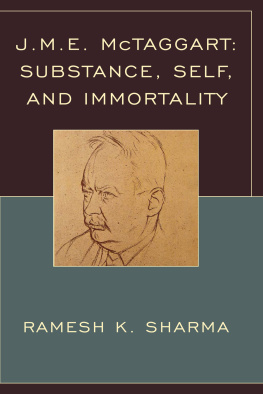
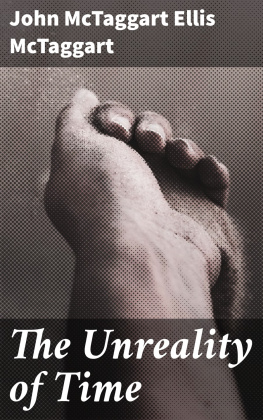
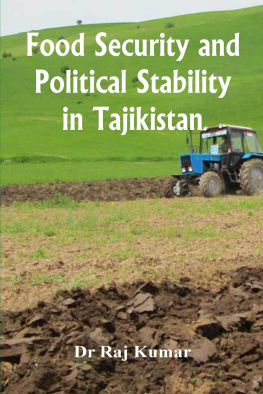
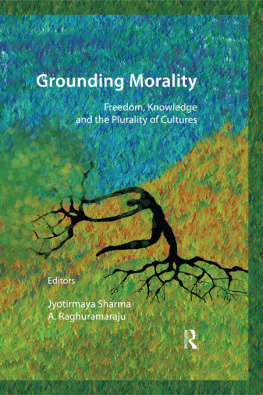
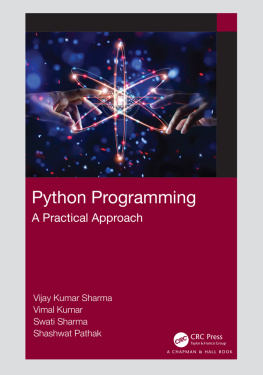
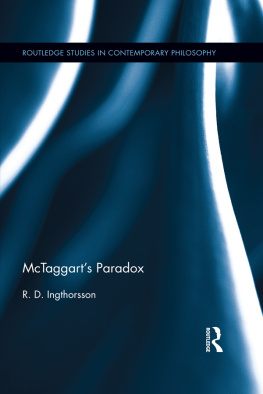
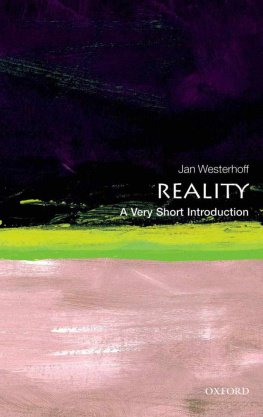


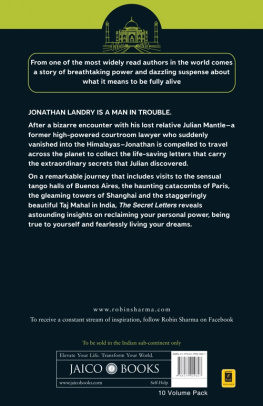
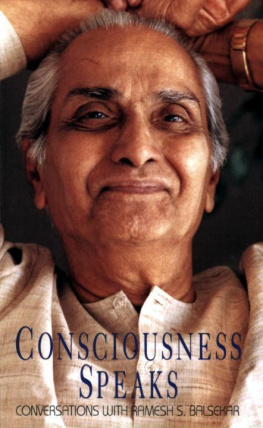
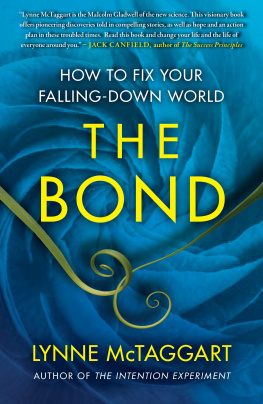

 The paper used in this publication meets the minimum requirements of American National Standard for Information SciencesPermanence of Paper for Printed Library Materials, ANSI/NISO Z39.48-1992.
The paper used in this publication meets the minimum requirements of American National Standard for Information SciencesPermanence of Paper for Printed Library Materials, ANSI/NISO Z39.48-1992.